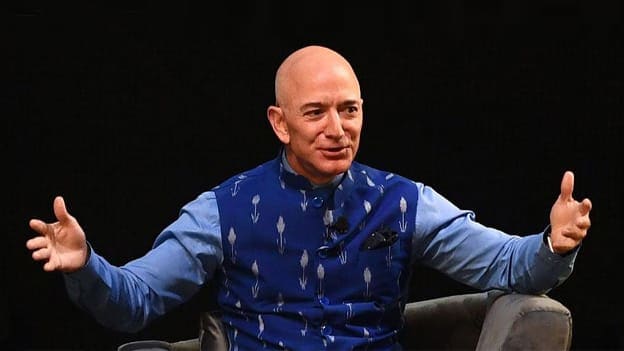COVID-19 crisis on top of the priority list for Amazon's Jeff Bezos

As Jeff Bezos rightly mentions in the memo to all employees, "There is no instruction manual for how to feel at a time like this." At this time of crisis when several countries across the globe deal with the COVID-19 crisis and businesses are disrupted like never before, Amazon has seen a surge in demand from customers.
Amazon to hire 100,000 workers to meet the rising demand
A few days back Amazon announced its plans to increase its staff and hire about 100,000 more to meet the current rising demand. More staff is particularly required in warehouses and for delivery roles. In fact, for these two roles, Amazon has also decided to boost salaries and has instructed the delivery partners to also raise wages for drivers who don't work for Amazon directly.
Amazon on Saturday announced hourly workers in its U.S. delivery network would receive double pay for every hour they work in excess of 40 each week, effective March 15 through May 9. That follows temporary raises of $2 per hour that will be in effect through April.
Amazon is not alone. Another e-retailer, Walmart is also increasing its staff and giving out bonuses to them.
However, with most of the employees advised to stay at home and be safe at this time, many debate if it’s safe for these delivery workers and warehouse staff to be out there and put themselves at risk.
The risks to warehouse & delivery workers
With social distancing being practiced by a majority of the population in the affected countries and people avoiding going to the stores, platforms like Amazon are experiencing a high demand. Creating more demand for warehouse workers and delivery staff. Bezos hence feels that it is in this moment on time when the work the employees do at Amazon becomes most critical.
On Friday, a group of workers from Walmart, Amazon and a few other retailers, called United for Respect, demanded paid leave for those affected by the coronavirus outbreak and better protective measures from their employers.
In fact, four legislators sent a letter to Bezos on Friday outlining their concern for the safety of employees who help pack and ship customer orders. The letter cited news reports in which Amazon employees said warehouses don’t have adequate sanitation supplies or social distancing practices. Amazon called the claims in the letter “simply unfounded,” detailing increased safety measures and other steps it’s taking to protect its workers.
While the move of increasing hiring and creating opportunities for those laid off amid COVID-19 crisis is a positive step, expanding teams and increasing salaries are not sufficient ways to ensure employees' safety. Currently, it is the health of the employees and their families and the many people they engage with during their work that is of utmost importance.
It is therefore absolutely critical that companies like Amazon and Walmart and other e-retailers equip the delivery workers and warehouse staff with the required safety gear.
Bezos ensures that the company has increased cleaning in its facilities and implemented instructions for employees to maintain a safe distance from one another, and continues to meet daily to address safety issues.
However, he highlights how getting proper equipment remains a challenge.
“We’ve placed purchase orders for millions of face masks we want to give to our employees and contractors who cannot work from home, but very few of those orders have been filled," shared Bezos.
“Masks remain in short supply globally and are at this point being directed by governments to the highest-need facilities like hospitals and clinics," he added.
It is interesting to see how under different circumstances, Bezos is devoting all of his time and attention to a single subject. While we kept on discussing the many trends disrupting the world of work, the entire ecosystem was shaken to its core by something as uncertain as COVID-19. Apart from his day job building and creating one of the world’s most influential companies, on the top of the priority list for Amazon's CEO is now COVID-19 crisis. This is how priorities change.
To learn how some of the other companies across countries are responding to COVID-19, read this story: How are organizations around the world responding to COVID-19?

















